Filter by

Truth and Responsibility: A Personalist Reading of Newman
This book goes beyond a simple study of Newman’s thought and work and seeks to apply his deductions to modern value conflicts. Although it will be of particular relevance to academic readers with some prior knowledge of Newman’s works, it may also be of wider interest to students of history, philosophy, theology and spirituality. More generally, its unusual focus on Newman’s epistemology …
- Edition
- -
- ISBN/ISSN
- 9789004682818
- Collation
- 244 hlm; ill., lamp.,
- Series Title
- -
- Call Number
- -

Ways of the Scientific World-Conception. Rudolf Carnap and Otto Neurath
Rudolf Carnap (1891-1970) and Otto Neurath (1882-1945) had a decisive influence on the development of the scientific world view of logical empiricism. Their relationship was marked by mutual intellectual stimulation, close collaboration, and personal friendship, but also by controversies that were as heated as they were rarely fought out in public. Carnap and Neurath were, in the words of Olga …
- Edition
- -
- ISBN/ISSN
- 9789004680203
- Collation
- 380 hlm; ill., lamp.,
- Series Title
- Studien zur Österreichischen Philosophie, Volume: 50
- Call Number
- -
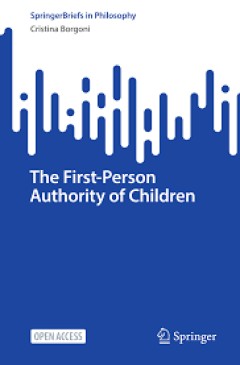
The First-Person Authority of Children
This is an open access book that addresses how we treat others and, in particular, infants and children, with first-person authority. We respond to people’s first-person authority when we give our interlocutor’s communication of their mental states more significance in establishing their thoughts, desires, and feelings than if another person were to report those mental states for them. B…
- Edition
- 1
- ISBN/ISSN
- 978-3-031-83999-3
- Collation
- XI, 57
- Series Title
- -
- Call Number
- -
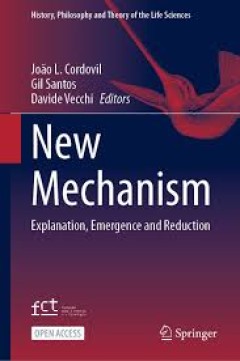
New Mechanism : Explanation, Emergence and Reduction
This open access book addresses the epistemological and ontological significance as well as the scope of new mechanism. In particular, this book addresses the issues of what is "new" about new mechanism, the epistemological and ontological reasons underlying the adoption of mechanistic instead of other modelling strategies as well as the possibility of mechanistic explanation to accommodate a n…
- Edition
- -
- ISBN/ISSN
- 978-3-031-46917-6
- Collation
- XII, 272
- Series Title
- History, Philosophy and Theory of the Life Sciences (HPTL, volume 35)
- Call Number
- -
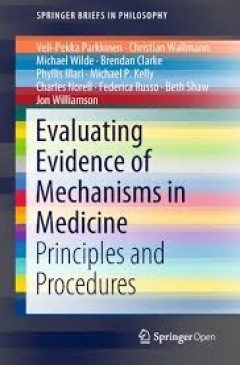
Evaluating Evidence of Mechanisms in Medicine : Principles and Procedures
This book is open access under a CC BY license. This book is the first to develop explicit methods for evaluating evidence of mechanisms in the field of medicine. It explains why it can be important to make this evidence explicit, and describes how to take such evidence into account in the evidence appraisal process. In addition, it develops procedures for seeking evidence of mechanisms, fo…
- Edition
- -
- ISBN/ISSN
- 978-3-319-94610-8
- Collation
- XVIII, 125
- Series Title
- Evaluating Evidence of Mechanisms in Medicine : Principles and Procedures
- Call Number
- 610 PAR e

A Narratological Approach to Lists in Detective Fiction
This open access book examines how the form of the list features as a tool for meaning-making in the genre of detective fiction from the nineteenth to the twenty-first century. The book analyzes how both readers and detectives rely on listing as an ordering and structuring tool, and highlights the crucial role that lists assume in the reading process. It extends the boundaries of an emerging fi…
- Edition
- 1
- ISBN/ISSN
- 978-3-031-33227-2
- Collation
- oer.unej.ac.id
- Series Title
- Crime Files
- Call Number
- 379

Applying Reflective Equilibrium
This open access book provides the first explicit case study for an application of the method of reflective equilibrium (RE), using it to develop and defend a precautionary principle. It thereby makes an important and original contribution to questions of philosophical method and methodology. The book shows step-by-step how RE is applied, and develops a methodological framework which will be us…
- Edition
- 1
- ISBN/ISSN
- 978-3-031-04333-8
- Collation
- -
- Series Title
- Logic, Argumentation & Reasoning
- Call Number
- XI, 273
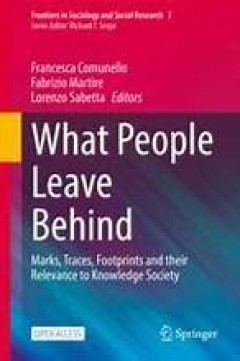
What People Leave Behind
This open access book focuses on a particular but significant topic in the social sciences: the concepts of “footprint” and “trace”. It associates these concepts with hotly debated topics such as surveillance capitalism and knowledge society. The editors and authors discuss the concept footprints and traces as unintended by-products of other (differently focused and oriented) actions th…
- Edition
- 1
- ISBN/ISSN
- 978-3-031-11756-5
- Collation
- -
- Series Title
- Frontiers in Sociology and Social Research
- Call Number
- XIII, 359
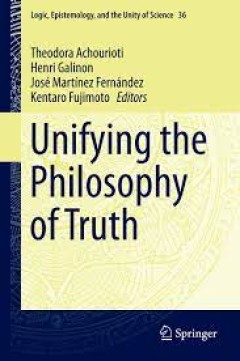
Unifying the Philosophy of Truth
- Edition
- -
- ISBN/ISSN
- 978-94-017-9673-6
- Collation
- -
- Series Title
- -
- Call Number
- -
- Edition
- -
- ISBN/ISSN
- 978-94-017-9673-6
- Collation
- -
- Series Title
- -
- Call Number
- -
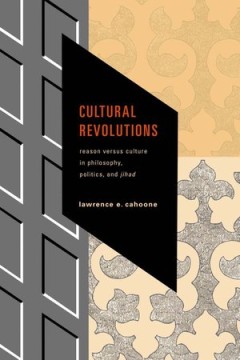
Cultural Revolutions: Reason Versus Culture In Philosophy, Politics, And Jihad
Cultural Revolutions argues that reason itself is cultural, but no less reasonable for it. Lawrence Cahoone systematically defines culture and gauges the consequences of the ineradicably cultural nature of cognition and action, yet argues that none of this implies relativism. Cahoone offers a definition of culture as teleologically organized practices, artifacts, and narratives and analyzes the…
- Edition
- -
- ISBN/ISSN
- 9780271030241
- Collation
- -
- Series Title
- -
- Call Number
- 121.8
 Computer Science, Information & General Works
Computer Science, Information & General Works  Philosophy & Psychology
Philosophy & Psychology  Religion
Religion  Social Sciences
Social Sciences  Language
Language  Pure Science
Pure Science  Applied Sciences
Applied Sciences  Art & Recreation
Art & Recreation  Literature
Literature  History & Geography
History & Geography